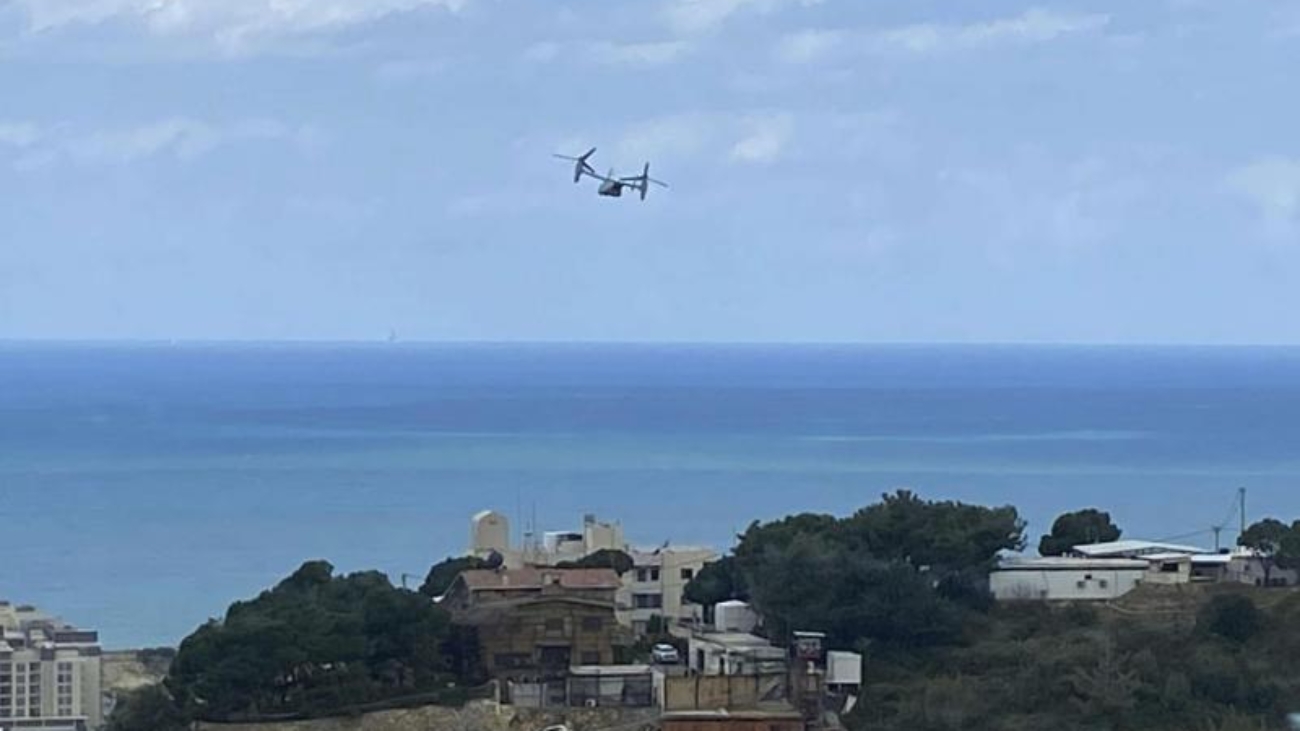This piece was originally published on the thearabweekly website https://thearabweekly.com/
TUNIS – The dramatic departure of a dual US-Lebanese citizen from the US Embassy in Lebanon provided Beirut with an uncomfortable reminder of its difficult past and an unforgiving insight into its troubled present.
Awaiting retrial on charges of human rights abuses, Amer Fakhoury, 57, was reported to have fled the US Embassy March 19. The accusations against Fakhoury date to his time as an administrator of Khiam detention centre in Israeli-occupied southern Lebanon, a facility notorious for its torture of dissidents and militants in the 1980s and 1990s.
Fakhoury, a commander in the Israel-backed South Lebanon Army (SLA) was called “the butcher of Khiam” for allegedly orchestrating torture sessions in which prisoners were whipped with electric cables.
Fakhoury fled Lebanon for Israel shortly before the withdrawal of Israeli forces in 2000. He went to the United States where he tried to claim political asylum. He won US citizenship through one of his children last year.
Fakhoury, said to be undergoing treatment for late-stage cancer, returned to Lebanon last September. He was arrested but then released in March after a military tribunal ruled the statute of limitations for the torture charges had expired.
However, following public outcry led by Iran-backed Hezbollah, a judge imposed a travel ban and asked the Military Court of Appeals to strike down the earlier ruling.
The circumstances of Fakhoury’s release are unclear. While US President Donald Trump thanked the “Lebanese government,” the US ambassador was summoned by Lebanese Foreign Minister Nassif Hitti to explain how Fakhoury left the country, despite suspicions that Lebanese officials may have colluded in the plan.
Hezbollah Secretary-General Hassan Nasrallah sought to establish as much distance as possible between Hezbollah and Fakhoury’s flight. He claimed he learnt of the incident “on television and then made calls to inquire about it,” adding that, “There was American pressure and some people were weak.”
A bipartisan call for sanctions against officials involved in Fakhoury’s detention would have further punished a government straining under the US policy of “maximum pressure” against Iran and its allies, including Hezbollah.
The Israeli newspaper Haaretz reported that the United States threatened to freeze assistance to the Lebanese Army, totalling more than $100 million annually. US support for Lebanon’s application for assistance from the International Monetary Fund was also said to have been made conditional on Fakhoury’s release.
“This is not the first time that actual decisions or actions by the Lebanese government or by Hezbollah contradict the usual anti-US rhetoric embraced by the party and some of its allies,” said Elie Abouaoun of the United States Institute for Peace.
“It happened before when some municipal councils politically close to Hezbollah were tacitly authorised to receive or be part of [US government]-funded projects. There were other examples cited by previous US diplomats about requests made to senior Lebanese officials that were surprisingly honoured while going at odds with Hezbollah’s mainstream discourse.”
How much choice Hezbollah or the Lebanese government had is open to scrutiny. Battered by years of graft and mismanagement, Lebanon’s economy is nearly bankrupt while the coronavirus pandemic applies additional pressure on the country’s institutions. In early March, Beirut announced it would default on a $1.2 billion Eurobond payment while it sought to restructure its $90 billion debt.
In mid-March, with coronavirus threatening to engulf Lebanon’s health-care system, the government ordered the country into lockdown, closing its international airport, ports and land border crossings.
In any negotiation with the United States, Lebanon was always playing with a weakened hand.
“We do not know how this happened in terms of the prior negotiations, which started a few months ago, and the terms of the release but I believe that the Lebanese foreign minister’s summoning of the US ambassador is just a charade,” said Hanin Ghaddar, a visiting fellow at the Washington Institute for Near East Policy think-tank.
“They all knew what was going on and this was only to assuage public discontent. The White House thanked the Lebanese government because the Lebanese government cooperated, probably under pressure and Fakhoury wouldn’t have been released without the government’s and Hezbollah’s approval.”
Ghaddar said, given the sensitivity surrounding the Fakhoury case, it was unlikely that anyone would have taken such a fundamental decision without consulting Hezbollah.
“I believe not only Nasrallah approved but also took the decision himself,” Ghaddar said. “He is saying that he didn’t know because the Shia constituency couldn’t believe it.
“At one point, clashes erupted in the south between former communists who also served in the Khiam prison and Hezbollah. They needed to distance themselves. That was part one.
“Part two: Fakhoury’s former aide, former prison guard and SLA member Antoine al-Hayek, was assassinated and observers in Lebanon believe that this was another attempt to calm down the street and give it some ‘revenge’ satisfaction.”

